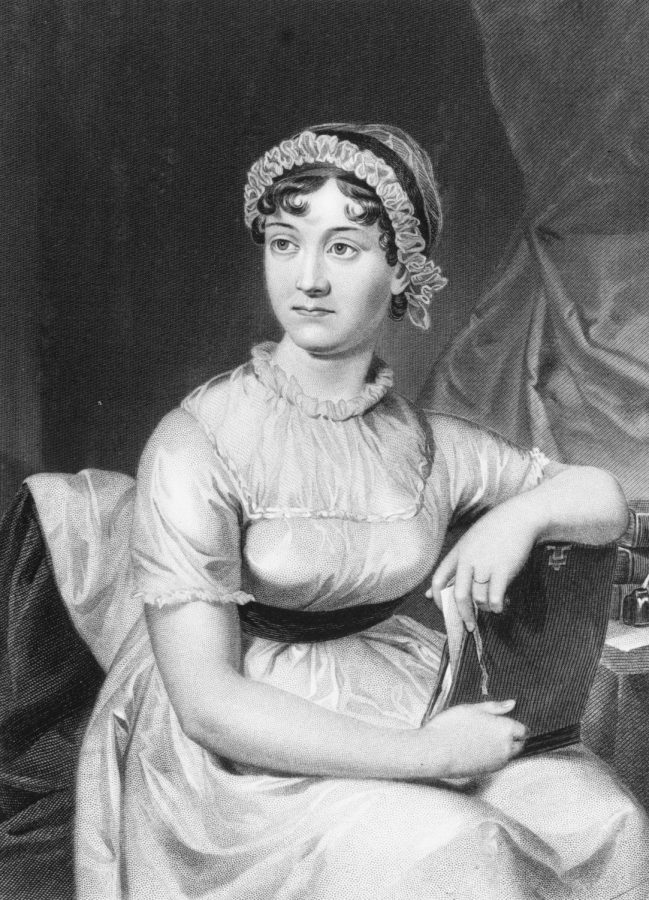Reinstated in 1976, the death penalty has been the cause of national debate for many years. While some argue that it violates human rights, others disagree, saying that there are some criminals so wicked , they don’t deserve to live. As of 2021, only 27 states in the USA authorize the death penalty.
The most common argument against capital punishment is that it always constitutes a murder, and virtually all religions agree that murder is wrong. However, this point, from a Jewish and Christian Biblical view, is not the issue. The real problem is found in the great number of innocent convicts.
In conversation with a Jew or Christian, you may be pointed to the sixth commandment, “You shall not kill” (Exodus 20:13). However, upon examining the original Hebrew of the scripture, one will find that the word used in this verse is, “trə·ṣāḥ” or “murder.” This Hebrew word is only found twice in the entire Bible, both in the sixth commandment located in Exodus and once again in Deuteronomy. The definition of murder according to the Merriam-Webster dictionary is, “the killing of an innocent person with malicious intent.” The key words here are: innocent and with malicious intent. Those convicted and on death row are not presumed innocent; they are convicted of heinous crimes. In addition, when these criminals are executed, it is not with any malice aforethought, they are simply being punished according to the law. Therefore, capital punishment is not murder.
Essentially, if our criminal justice system was perfect, there would not be a “murderous” issue with the death penalty. The dilemma is not that it is murder, but that far too many innocent people are convicted. Even though many degenerate criminals are executed by the death penalty, one cannot turn a blind eye to even a single innocent person wrongfully convicted and executed.
A study by the National Academy of Sciences from 2014 showed that approximately 4.1% of convicts on death row are innocent. The study continues to say that, given this significant error rate, several of the defendants executed since 1977 were innocent. This makes sense because a great number of those on death row were convicted before DNA was used as evidence for crimes. When cases from years ago are re-examined with today’s technology, the shocking discovery is occasionally made that the convict was indeed innocent.
According to the National Coalition to Abolish the Death Penalty (NCADP), over 150 defendants on death row have been exonerated. Or, 1 person exonerated for every 10 executed. This statistic is rather disquieting because it begs the question: how many innocent people were executed before they could be exonerated with new evidence?
Take the case of Kirk Bloodsworth, the first man to be exonerated based on DNA testing. He was convicted of the rape and murder of a 9-year-old girl based on crude eyewitness testimony. The suspect was described as being 6’5” tall, tan, skinny, and blond with a bushy mustache. Bloodsworth was around six feet tall with red hair and was not tan. No matter how hard he tried, everyone he spoke to firmly believed he was guilty. His defense made feeble attempts, and Bloodsworth was convicted in 1985.
Finally, in 1992, he lobbied for a DNA fingerprinting test to be done on the evidence collected from the crime scene. The results proved Bloodsworth’s complete innocence, and he was released in 1993, after spending almost 9 years in prison, 2 of them on death row. The DNA ended up matching one of Bloodsworth’s fellow inmates, and that man was finally convicted of the heinous crime he committed years before. Bloodsworth eventually became the director of Witness to Innocence, a program to help death row survivors.
Though he spent many years wrongfully in prison, Bloodsworth was still exonerated before being executed; there are others who were not so lucky. A few famous examples of men who were wrongfully executed are: Troy Davis, Carlos DeLuna, Gary Graham, and Cameron Todd Willingham. Troy Davis was accused of the murder of a police officer, but seven out of the nine witnesses recanted their testimony. In addition, the man with him at the scene admitted to carrying the type of gun the police officer was shot with but was never treated as a suspect. Before his execution, Davis’s story sparked international rallies, and he gained the support of many public figures including President Jimmy Carter, Pope Benedict XVI, Harry Belefonte, and 51 members of Congress.

Carlos DeLuna was executed for the murder of Wanda Lopez. He insisted that it was not him, but rather another man named Carlos Hernandez who stabbed the woman to death. Twenty-three years later, Columbia Law School Professor James Liebman published an extensive 430-page report with his students that proved DeLuna’s innocence. Conflicting eyewitness statements, police investigation mistakes, and missing information were some reasons cited by the report for DeLuna’s conviction. Meanwhile, Carlos Hernandez was never pursued by the prosecution, though he was later found to have been arrested 39 times and sent to prison for 10 years after the attempted murder of another woman.
Gary Graham was convicted of the robbery and murder of Bobby Lambert. The only witness claimed to have seen Graham through a windshield from about 30 to 40 feet away, and there was no physical evidence that he committed the murder. The defense failed to call two witnesses who claimed to have seen the killer and that it was not Graham. He maintained his innocence until execution in 2000.
Cameron Todd Willingham was executed for the murder of his three daughters by setting his house on fire. His final words were, “Please clear my name, I did not kill my children.” Willingham’s conviction was based on a forensic study that concluded the fire was caused by arson, but many fire science experts disagreed with the report, saying there was no evidence. Six years after his execution, the Texas Forensic Science Commission released a report admitting that the conviction was based on flawed science, and the inmate who served as a witness claiming that Willingham confessed while in jail recanted his testimony.
This information is disturbing and calls for action. Many released from death row have become prominent figures in the voice against the death penalty. Among these are: Kirk Bloodsworth, Anthony Graves, Juan Roberto Meléndez-Colón, Randy Steidl, Delbert Tibbs, Henry Lee McCollum, and Leon Brown. In 1992, Anthony Graves was convicted of assisting Robert Carter in the murder of Bobbie Davis, her daughter, and her four grandchildren.
There was no physical evidence that Graves was involved, and his conviction was based on Carter’s testimony, which he later recanted before his own execution. In a retrial 14 years later, the court found that the prosecution withheld evidence and elicited false witness testimony; he was released in 2010.
Juan Roberto Meléndez-Colón was accused of Delbert Baker’s murder based on the testimony of two dubious witnesses and no physical evidence. One of the witnesses, whose parents had had a falling out with Meléndez-Colón, even threatened to kill him before reporting him to the police. In addition, crucial testimony for the defense was omitted during the trial. Meléndez-Colón, who could not afford a lawyer, was convicted and sent to prison. Years later, a tape in which another man confessed to the murder was found, and he was finally released after 17 years. Meléndez-Colón received $100 in compensation and no official apology.
In 1986, Randy Steidl was convicted of the murder of two newlyweds. When the Illinois State Police found evidence that he was framed through prosecutorial and police misconduct in order to protect the real killer, a federal judge called for a retrial. Steidl was released after 17 years in prison.
In 1974, Delbert Tibbs was stopped and questioned about the rape of Cynthia Nadeau and the murder of her friend Terry Milroy. After taking pictures, the police left, satisfied that he did not fit the suspect’s description. However, Nadeau changed her mind after seeing his picture, and Tibbs was convicted following a two-day trial. After 3 years on death row, the Florida Supreme Court overturned the verdict ,and Tibbs was exonerated.
Mentally disabled half-brothers Henry Lee McCollum and Leon Brown were accused of the 1983 rape and murder of an 11-year old girl. Though they confessed, the two men immediately recanted saying they had been coerced. In 2014, McCollum and Brown were exonerated when DNA evidence came out proving that another man, who committed a similar crime again later, was guilty.
The troubling thing is, modern technology alone will not stop innocent people from being put on death row. As many of the examples above show, a lack of DNA evidence was not the issue for their wrongful conviction. False testimony and withheld evidence are problems that can continue to occur, even if DNA tests are available. It is too easy to condemn an innocent person, and because of this we should abolish the death penalty. The punishment for evil deeds must be administered, but even a 4% margin of error is too great. You can always attempt a retrial, but you cannot bring a man back from the dead.
Among some others, here is a list of those wrongfully convicted and the time they served: Habib Wahir Abdal: 16 years, Kenneth Adams: 18 years, Malcolm Alexander: 38 years, George Allen: 30 years, Marvin Anderson: 20 years, Randolph Arledge: 29 years, Ralph Armstrong: 28 years, Herman Atkins: 12 years, Steven Avery: 18 years, Kevin Bailey: 16 years, Steven Barnes: 20 years, William Barnhouse: 25 years, Jonathan Barr: 14 years, Johnny Tall Bear: 26 years, Antonio Beaver: 10 years, Gene Bibbins: 16 years, Michael Blair: 14 years, Kirk Bloodsworth 8 years, Orlando Boquete: 13 years, Mark Diaz Bravo: 4 years, Kennedy Brewer: 15 years, Timothy Bridges: 25 years, Dale Brison: 3 years, Jimmy Ray Bromgard: 15 years, Levon Brooks: 16 years, Nathan Brown: 17 years, Roy Brown: 15 years, Joseph Buffey: 17 years, Huwe Burton: 19 years, A. B. Butler: 17 years, Kevin Byrd: 12 years, Dean Cage: 12 years, Leonard Callace: 5 years, Terry Chalmers: 8 years, Ulysses Rodriguez Charles: 17 years, Clyde Charles: 17 years, Charles Chatman: 27 years, Robert Clark: 23 years, Timothy Cole: 23 years, Ronald Cotton: 10 years, Sedrick Courtney: 16 years, Stephan Cowans: 6 years, Roy Criner: 10 years, McKinley Cromedy: 5 years, Alan Crotzer: 25 years, Rolando Cruz: 10 years, Charles Dabbs: 7 years, Richard Daziger: 12 years, Gerald Davis: 8 years, Dewey DavisL 8 years, Frederick Daye: 10 years, Wilton Dedge: 22 years, Jeff Deskovic: 16 years, Robert Dewey: 16 years, Luis Diaz: 25 years, John Dixon: 10 years, Thomas Doswell: 19 years, Cornelius Dupree: 31 years, Timothy Durham: 4 years, Douglas Echols: 15 years, Clarence Elkins: 6 years, Lonnie Erby: 17 years, Charles Irvin Fain: 18 years, Scott Fappiano: 21 years, Lewis Fogle: 33 years, Dennis Fritz: 11 years, Larry Fuller: 26 years, Barry Gibbs: 17 years, James Curtis Giles: 24 years, Bruce Godschalk: 15 years, Hector Gonzalez: 6 years, Angel Gonzales: 20 years, Paula Gray: 24 years, Anthony Gray: 8 years, Edward Green: 1 year, Michael Green: 13 years, Kevin Green: 16 years, William Gregory: 7 years, Byron Halsey: 19 years, Dennis Halstead: 19 years, James Harden: 16 years, Dion Harrell: 4 years, William O’Dell Harris: 8 years, Clarence Harrison: 17 years, Keith Allen Harward: 33 years, Andre Hatchett: 25 years, Travis Hayes: 9 years, Thomas Haynesworth: 27 years, Chad Heins: 11 years, Alejandro Hernandez: 10 years, Anthony Hicks: 6 years, Larry Holdren: 16 years, Edward Honaker: 9 years, Paul House: 23 years, Darryl Howard: 24 years, Darryl HuntL 19 years, Henry James: 29 years, Verneal Jimerson: 11 years, Albert Johnson: 10 years, Calvin Johnson: 16 years, Richard Johnson: 4 years, Larry Johnson: 18 years, Rickie Johnson: 25 years, Ronald Jones: 10 years, Joe Jones: 7 years, Clifford Jones: 30 years, Eric Kelley: 22 years, John Kogut: 19 years, Paul D. Kordonowy: 13 years, Kerry Kotler: 10 years, Ray Krone: 10 years, Barry Laughman: 16 years, Carlos Lavernia: 15 years, Steven Linscott: 10 years, Eddie Joe Lloyd: 17 years, Kirstin Blaise Lobato: 16 years, Eddie James Lowery: 9 years, Dennis Maher: 19 years, Anthony Massingill: 34 years, Ryan Matthews: 5 years, Larry Mayers: 19 years, Curtis McCarty: 21 years, Antron McCray: 6 years, Arvin McGee: 13 years, Thomas McGowan: 23 years, Lawrence McKinney: 31 years, Clark McMillan: 22 years, Leonard McSherry: 13 years, Jerry Miller: 25 years, Robert Miller: 10 years, Niel Miller: 10 years, Randall Mills: 14 years, Marvin Mitchell: 7 years, Brandon Moon: 17 years, Michael Morton: 24 years, Vincent Moto: 9 years, Alan Newton: 21 years, James O’Donnell: 2 years, Christopher Ochoa: 13 years, Victor Ortiz: 12 years, Freddie Peacock: 34 years, Larry Peterson: 17 years, Steven Phillips: 26 years, Jeffrey Pierce: 15 years, Brian Piszczek: 3 years, Willie Rainge: 18 years, John Restivo: 18 years, Harold Richardson: 15 years, Kevin Richardson: 5.5 years, James Richardson: 10 years, Gerard Richardson: 18 years, George Rodriguez: 18 years, Peter Rose: 10 years, Rafael Ruiz: 24 years, Fredric Saeker: 6 years, Yusef Salaam: 6 years 8 month, Raymond Santana: 5 years, Eric Sarsfield: 13 years, Michael Saunders: 15 years, Samuel Scott: 15 years, Shainne Sharp: 18 years, David Shephard: 11 years, Walter D. Smith: 10 years, Frank Lee Smith: 14 years, Walter Snyder: 7 years, Ernest Sonnier: 22.5 years, Bennie Starks: 27 years, Frank Sterling: 18 years, Josiah Sutton: 5 years, Walter Swift: 26 years, Terrill Swift: 14 years, Christopher Tapp: 21 years, Ronald Gene Taylor: 13 years, Robert Taylor: 14 years, Vincent Thames: 13.5 years, Damon Thibodeaux: 15 years, James Tillman: 17 years, Steven Toney: 13 years, Jerry Frank Townsend: 21 years, David Vasquez: 4 years, Robert Lee Veal: 16 years, Eduardo Velasquez: 13 years, James Waller: 24 years, Patrick Waller: 16 years, Douglas Warney: 9 years, Earl Washington: 16 years, Calvin Washington: 14 years, Kenny Waters: 18 years, Troy Webb: 7 years, Bernard Webster: 19 years, David Wiggins: 23 years, Dennis Williams: 18 years, Michael Anthony Williams: 24 years, Ron Williamson: 11 years, Calvin Willis 21 years, John Willis: 7 years, Korey Wise: 12 years, Glen Woodall: 5 years, Anthony Wright: 25 years, Rickey Dale Wyatt: 33 years, Nicholas Yarris: 21 years, Larry Youngblood: 15 years.








